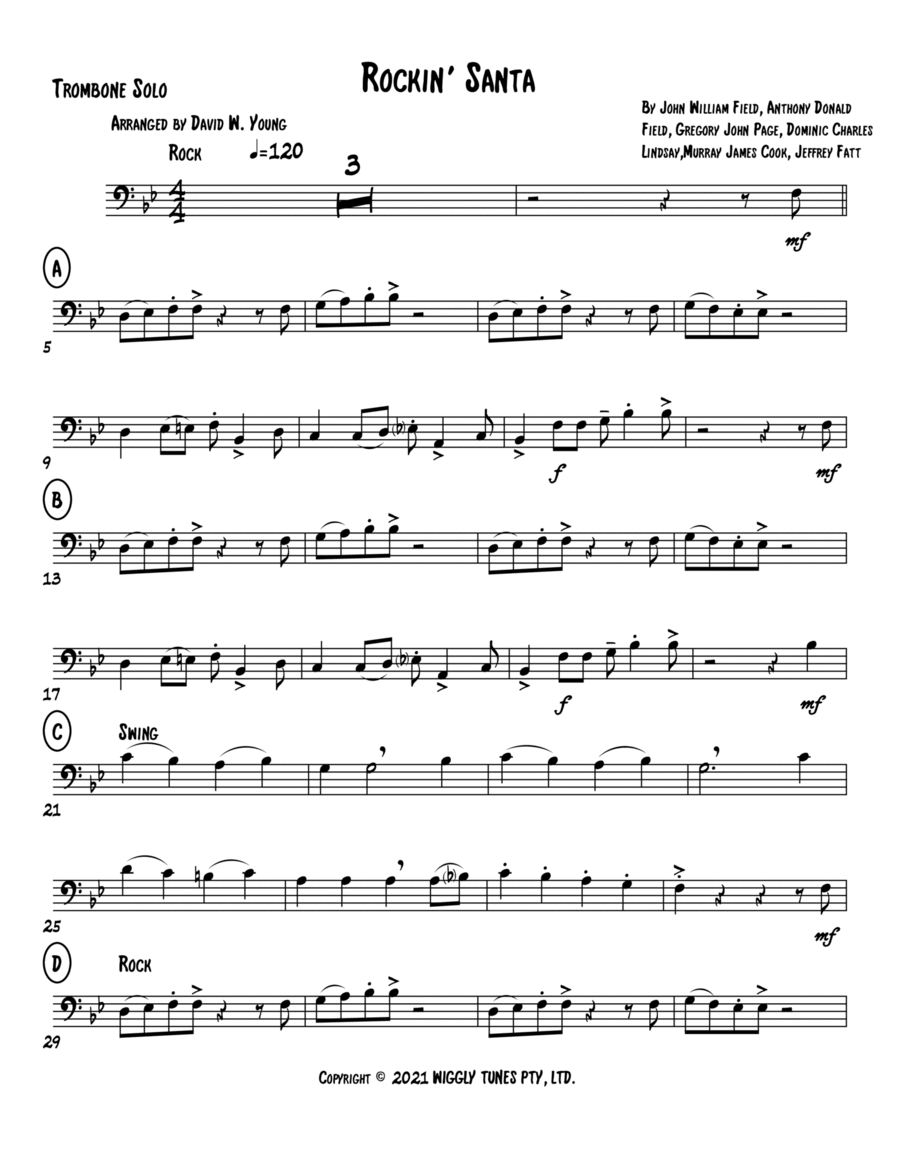Tenor Trombone,Trombone Solo - Level 3 - Digital Download SKU: A0.1289208 Composed by Anthony Donald Field, Dominic Charles Lindsay, Gregory John Page, Jeffrey Fatt, John William Field, and Murray James Cook. Arranged by David W. Young. Christmas,Holiday,Rock. Individual part. 2 pages. Dave Young #879980. Published by Dave Young (A0.1289208). A trombone solo rock version of Santa Claus Is Coming To Town.Complimentary performance MP3 available at secretharbor884@gmail.com.
